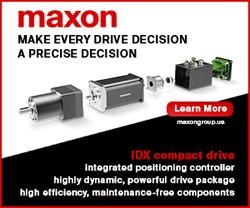Automotive, Manufacturing, Cybersecurity Companies and More Encouraged to Apply for Space Program Hosted by Hyperspace Challenge
Both Space and Non-space Companies and Innovators Will Come Together During the Program to Explore and Develop Technologies That Can be Used to Increase Protection and Resilience of U.S. Space Assets
U.S. Space Force accelerator Hyperspace Challenge recently announced a program in partnership with the U.S. Space Force's Space Rapid Capabilities Office (Space RCO) that is designed to convene a cohort of innovators and companies that can explore ways to make space assets, including satellites, more resilient to threats. The program will bring together companies from the traditional space and aerospace/defense industries, as well as from non-traditional industries such as automotive, manufacturing, and cybersecurity to engage with the U.S. Space Force to find innovative solutions.
Potential participants should submit an initial interest form by August 15.
"In addition to companies already targeting the space market, we need to be engaging now with non-space companies and innovators who can think creatively about the technologies they already use in their own fields that could have wider-reaching applications in space," says Matthew Fetrow, Space RCO communications manager. "This is not necessarily your typical space cohort: we are interested in companies with advanced technologies that may or may not be operating in the space industry at all now. We've already said the future of space includes everyone. That future is now."
Specifically, the 2023 cohort will be exploring the application of their proposed technologies to make space assets both more resilient and responsive to threats. Space RCO is pursuing products that:
Increase Space Visibility and Awareness using threat and hazard awareness capabilities that can quickly and accurately detect and prioritize threats either from the ground or space.
Advance Space Analysis and Vehicle Autonomy using artificial intelligence, machine learning, and/or autonomous technologies that reduce ground-based vehicle operator workload, inform intelligent vehicle response decisions, and decrease vehicle response time.
Increase Space Vehicle Lifespan and Maneuverability using advanced propulsion, refueling capabilities, and/or other fuel conservation innovations that allow space assets to maneuver freely without future negative consequences.
While companies may address each need individually, Space RCO is particularly interested in addressing the needs collaboratively in order to unlock new opportunities in space, enable safer and faster readiness and training activities, and even create new operating concepts.
As part of the program, participants will work directly and develop relationships with government officials from Space RCO.
Candidates that should apply include:
Companies outside of the traditional space and aerospace industries with relevant technological solutions that are currently applied to other industries or sectors, including (but not limited to) those in automotive, cybersecurity, or manufacturing
Companies with technologies that could streamline the design, development, and deployment of solutions within the next few years
Companies in the traditional space or aerospace industries with technologies supportive but adjacent to their core business that could have a relevant application to the needs, including those with sensor technologies, advanced computing solutions, propulsion systems, and refueling systems
Companies interested in learning the details behind government needs and building relationships with potential government partners.
As concerns increase about threats to military, civil and even commercial satellites from deliberate actions such as physical attacks, signal jamming, or laser attacks that disable satellites, it has become more pressing to make sure that space is safe for everyone and that more advanced technologies are created to better maintain the security, stability, and long-term sustainability of space.
Applications will open after a series of webinars in August. Companies interested in knowing more should submit an interest form at hyperspacechallenge.com to receive additional communications.
About Hyperspace Challenge
The Hyperspace Challenge was created in 2018 by the Air Force Research Laboratory (AFRL) and CNM Ingenuity, an economic development arm of Central New Mexico Community College, to accelerate collaboration among startups, university research teams and the government, and shift space innovation into hyperdrive. The accelerator, which is now directed by CNM Ingenuity in conjunction with AFRL and the U.S. Space Force, cultivates networks in an innovation ecosystem prioritizing connection and community. To date, the accelerator has supported over 60 small businesses and universities from across the U.S. and abroad. More information about the university program can be found at hyperspacechallenge.com.
About Space Rapid Capabilities Office
The Space Rapid Capabilities Office is one of three U.S. Space Force acquisition organizations. Specializing in delivering first-of systems to fill quick-turn needs of the USSF, Space RCO executes programs to protect and defend national security interests from the growing scope and scale of space and counter-space threats. Space RCO is headquartered in Albuquerque, New Mexico, and has offices in Washington DC as well as liaisons directly embedded with key U.S. Space Force and USSPACECOM offices in Colorado Springs.
Featured Product

